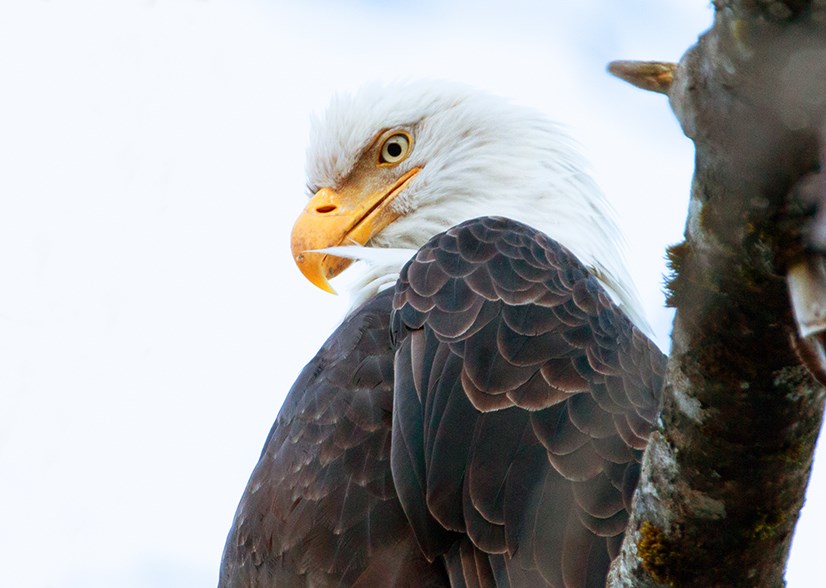A Port Coquitlam council meeting Tuesday (Jan. 25) about financial accounting principles turned interesting Tuesday when two bald eagles appeared outside of a window.
During the virtual live streamed meeting, Coun. Darrell Penner noticed the magnificent birds of prey outside his condo in the Fremont neighbourhood, which has an enormous preserved wetland.
January and February are typically times when bald eagles migrate and Penner said there is a nest in the nature preserve along the Pitt River corridor outside his home.
But it was the timing of the sighting that made for an interesting turn of events when council was approving a plan for a financial audit by KPMG for 2021.
During its regular council of committee meeting, the politicians were told that accounting standards boards are looking into how to measure a city's 'natural assets' to determine climate emergency costs and risks.
The city has numerous forests, two rivers and multiple streams, but also faces potential flooding threats and may one day be required to acknowledge assets and potential liabilities on its financial statements.
WHAT ARE A CITY'S 'NATURAL ASSETS'?
This is something many local governments are already starting to do, with the Union of BC Municipalities providing resources for how it could be done and the City of Saskatoon measuring the value of its natural assets, finding that carbon storage in its wetlands to be worth $48.2 million a year.
But some councillors questioned the purpose of the exercise, and whether it would pit one city, such as the District of North Vancouver, that has many forests, against cities with fewer trees and more industrial land, such as Port Coquitlam, that is home to a large rail yard.
"It’s so hard to understand, if all of a sudden your borrowing power is [affected] by what you may have," said Coun. Steve Darling.
"We have a rail yard in the middle of our city compared to North Van where trees abound — it really makes it hard to quantify,"
Coun. Glen Pollock said he could understand the general principle for a city that relies on its natural assets for tourism.
But the city's mayor said while he supported the idea of measuring the value of trees, lakes and rivers, he wanted more information about the purpose of such an exercise.
"Just from my participation in Metro Vancouver and other groups, what I hear frequently is valuing natural assets, and it's being repeated ad nauseam, and I hear it and it's held up as something we all have to do and it's great. What I’ve never heard is an explanation of what it's going to do."
West said roads and building assets are measured and included as financial assets because they will one day have to be replaced. West wanted to know how the information from measuring natural assets would help cities with their decision-making and planning, other than being a "PR exercise" and making work for consultants.
DETERMINING A CITY'S BORROWING POWER
Council was told the requirement for measuring natural assets and including them in a financial statement is still being worked on by accounting standard boards, and the information may not end up on the city's books, but communicated in other ways.
However, there is the possibility that a city's ability to borrow could be impacted by the value of its natural assets, council was told.
"[It's] the risk associated with it, potentially" said KPMG auditor Brandon Ma. "Because if a certain community is very reliant on natural assets, for certain protections and things that they offer in terms of services, they could potentially impact on how someone assesses your ability to borrow and repay."
The matter was left for future discussion as more information becomes available, but not before Coun. Penner pointed out a natural asset he could see directly outside his office window.
"I’m going to increase the value of our natural assets, right now," Penner said, "I’ve been waiting to even say this, I’m sitting and looking at two bald eagles outside my office window here at the park and that's priceless, and if I were going to add into our inventory, then it’s just gone up exponentially."





